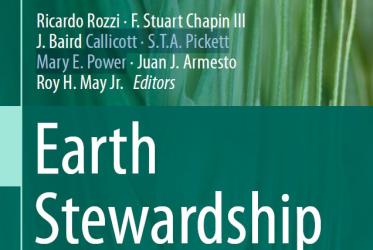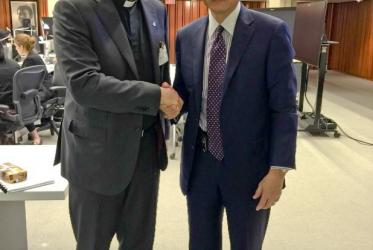Displaying 121 - 140 of 163
United Nations High Level Meeting on AIDS
06 May 2016
International affairs facilitator reflects on pilgrimage
31 March 2016
Symposium focuses on religion, violence, extremism
04 February 2016
Inspirations for Earth Stewardship
12 August 2015
Reclaiming our humanity
23 June 2015








